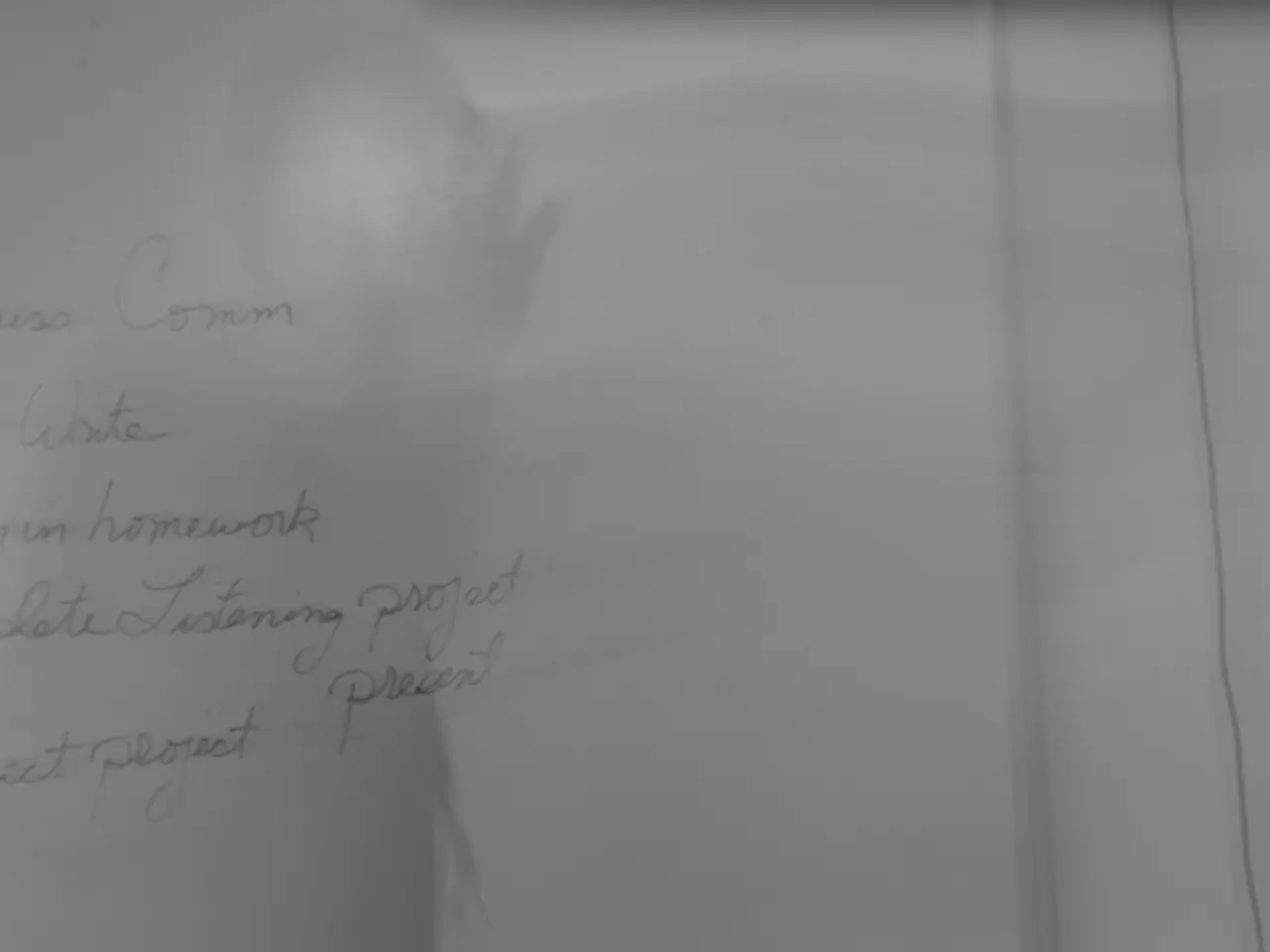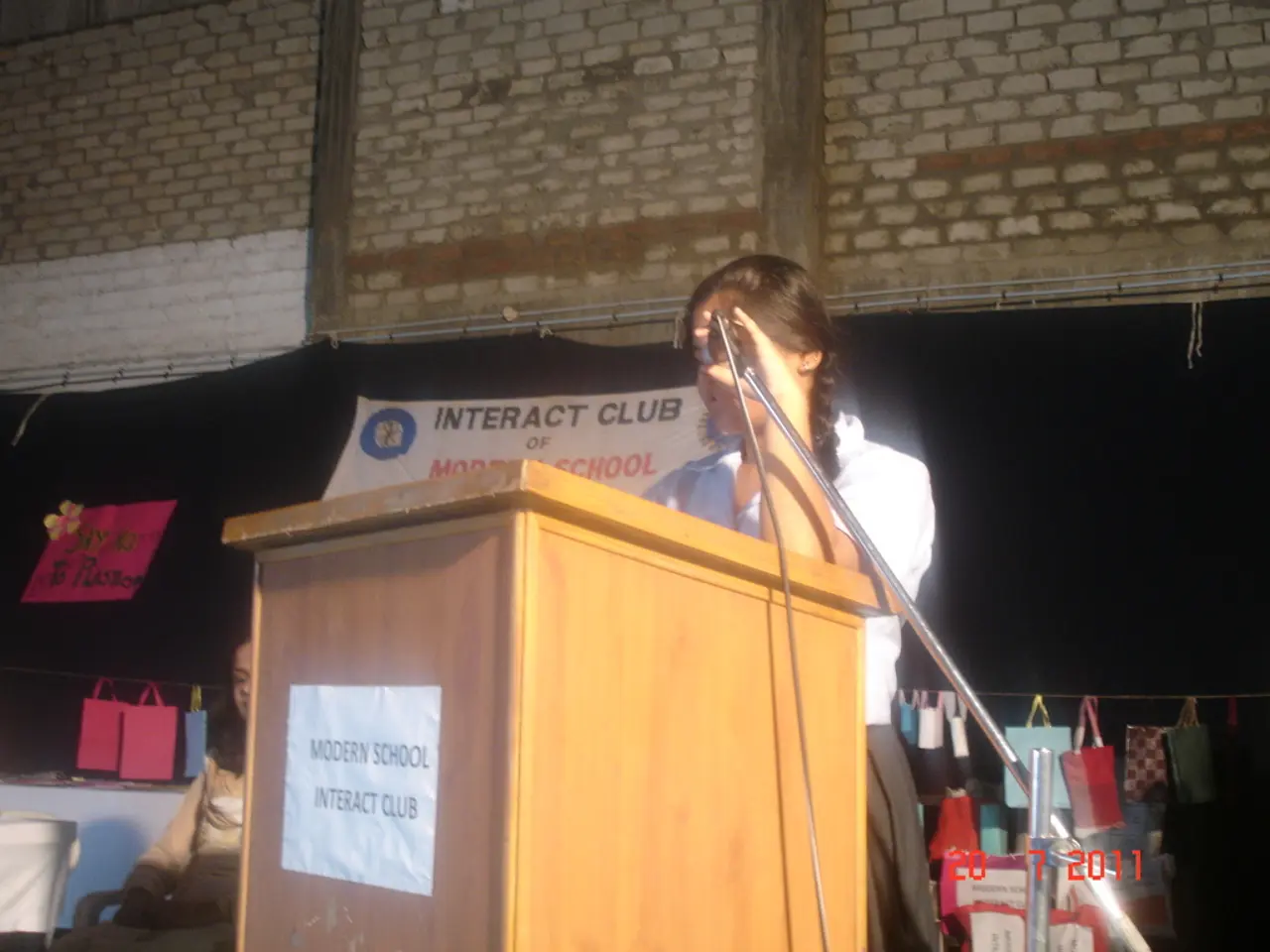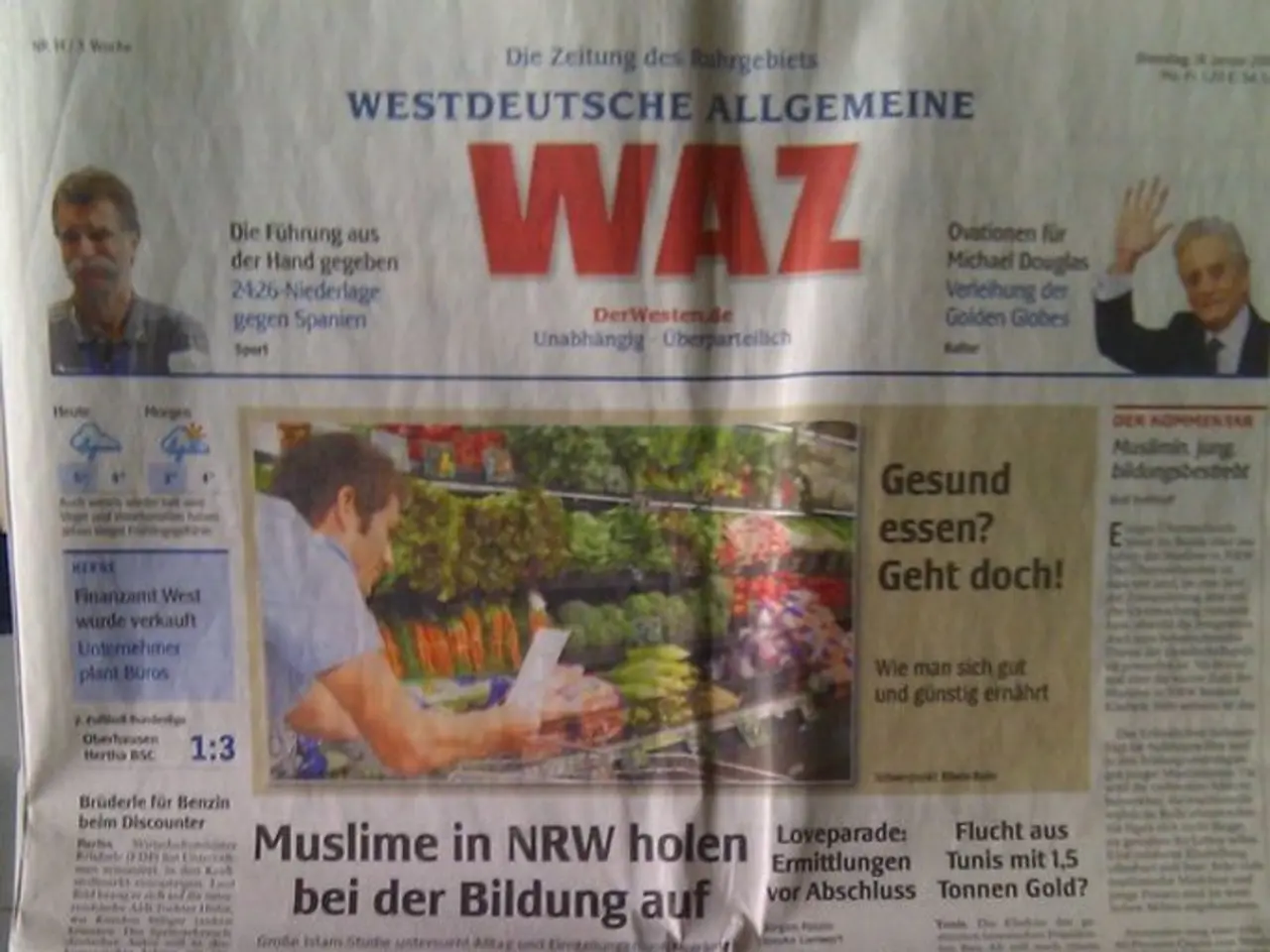Trump declares intent to levy a 10% tariff on nations aligning with BRICS, asserting uncompromisingly: "No exceptions will be made."
In a move that could escalate tensions between the U.S. and the BRICS bloc, President Donald Trump has announced his intention to impose an additional 10% tariff on countries that align with the BRICS group, a collection of 11 nations including Brazil, Russia, India, China, South Africa, Egypt, Ethiopia, Indonesia, Iran, Saudi Arabia, and the UAE. The threat, made via Trump's Truth Social network on July 6, 2025, comes as the BRICS nations are gathering for their annual summit in Rio de Janeiro, Brazil.
The tariff threat is perceived as a response to the BRICS' efforts that are seen as challenging the U.S. dollar's dominance and undermining American economic interests. Trump has not clearly defined what constitutes "anti-American" policies, but his past statements indicate concerns about the BRICS' initiatives to create alternative currencies or reform the global financial system.
The BRICS leaders have reacted strongly to this policy, releasing a joint declaration before Trump's tariff announcement, condemning the U.S. tariff threats as "indiscriminate" and a "threat to global economic stability." They argued that such unilateral tariffs distort trade and violate WTO rules, expressing concern over Washington's aggressive trade posture.
Meanwhile, other countries, including those outside the BRICS but facing U.S. tariffs, appear to be engaged in negotiations with the U.S. to avoid or reduce such tariffs through agreements increasing market access or cooperation. For example, Indonesia has signaled confidence about reaching agreements with the U.S. over critical minerals and market access, while Thailand and Cambodia are working to avoid high tariff rates through concessions on purchases of U.S. goods.
Brazilian President Luiz Inácio Lula da Silva, in his address during the first day of the summit, suggested that the BRICS should have a voting power in the IMF equivalent to 25% to justify their economic weight. He also emphasized the need for the BRICS to advance trade in local currencies among the group members.
The BRICS leaders also began discussions to establish a multilateral guarantee initiative, which are financial instruments that protect foreign direct investments against non-commercial risks in developing countries. The group also expressed their commitment to the "urgent restoration" of the dispute resolution system of the World Trade Organization (WTO) and reaffirmed their support for the candidacies of Ethiopia and Iran to join the WTO.
In summary, the new tariff policy signifies escalating tensions between the U.S. and the BRICS bloc, potentially impacting global trade dynamics and alliances. The BRICS leaders have responded strongly, expressing concern over the U.S. tariff threats and reaffirming their commitment to advancing trade in local currencies and reforming global financial institutions.
The tariff threat from President Trump is causing alarm among BRICS leaders, who have condemned it as a disturbance to global economic stability and a violation of WTO rules. In response, they have proposed the creation of multilateral financial instruments to protect foreign direct investments and have reaffirmed their support for reforming the global financial system.
Following the tariff announcement, negotiations are taking place between the U.S. and various countries, including those outside the BRICS, to avoid or reduce potential tariffs through agreements increasing market access or cooperation. This suggests a growing redirecting of trade alliances in response to the U.S. policy-and-legislation decisions, which are perceived as challenging the economic interests of nations abroad and potentially escalating tensions in politics and general-news.






